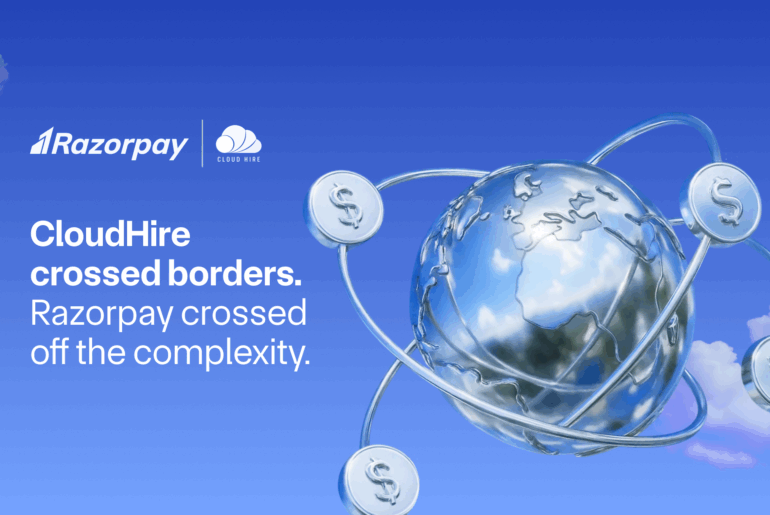IMPS (Immediate Payment Service) and UPI (Unified Payments Interface) are two prominent digital payment systems in India. They are renowned for their efficiency in facilitating swift and hassle-free money transfers. IMPS enables real-time interbank transactions, while UPI offers a seamless and user-friendly platform for peer-to-peer payments and merchant transactions.
In this comprehensive blog, we will delve into UPI vs IMPS detailed comparison, highlighting key factors such as convenience, security, and cost. Whether you’re interested in understanding payout processing or seeking insights into the differences between IMPS and UPI, our blog will provide you with the information you need for informed digital payment choices.
Related Read: Is UPI Safe for Online Payment? – Tips to Stay Safe From Scams & Frauds
Table of Contents
What are IMPS and UPI?
In India, IMPS and UPI have emerged as widely used electronic funds transfer methods, revolutionising the way people conduct financial transactions.
What is IMPS? IMPS known for its speed and simplicity, facilitates seamless money transfers between bank accounts. It operates around the clock, ensuring 24/7 availability for users. IMPS allows you to transfer funds up to Rs. 5 lakhs quickly and securely through mobile banking, NetBanking and ATMs.
What is UPI? It is a government-backed initiative developed by the National Payments Corporation of India (NPCI). It offers a streamlined mechanism for instant fund transfers between bank accounts using mobile devices. Much like IMPS, UPI boasts 24/7 accessibility. However, it has a transaction limit of up to Rs. 1 lakh per transaction, making it ideal for smaller payments and everyday expenses.
Both IMPS and UPI have witnessed a surge in popularity across India, driving the growth of digital payments in the country. These platforms have not only simplified fund transfers but have also contributed to the reduction of cash transactions, promoting a more cashless economy.
One notable distinction between the two systems lies in the ease of linking multiple bank accounts to UPI. UPI payment gateway provides a unique advantage by allowing you to link several bank accounts to a single UPI ID. This simplifies the payment process, as you can choose which linked account to use for each transaction. In contrast, IMPS requires separate registration for each bank account, which can be cumbersome for individuals with multiple accounts across different banks.
To summarise, IMPS and UPI are both powerful tools for online money transfer and have played a pivotal role in the transformation of India’s payment landscape. IMPS is favoured for its higher daily transaction limit, while UPI’s flexibility in linking multiple bank accounts offers a unique convenience that IMPS lacks.
Difference Between IMPS and UPI: A Deep Dive
IMPS enables customers to send money immediately between bank accounts by using MMID (Mobile Money Identifier) and mobile numbers. On the other hand, UPI is a more advanced system that enables seamless and real-time fund transfers through a single mobile application, eliminating the need for multiple banking apps.
IMPS and UPI difference is as follows:
Features |
IMPS |
UPI |
Ease of Transaction |
Requires detailed data entry (name, account number, IFSC). | Uses only the Virtual Payment Address (VPA) for convenient transactions. |
App Compatibility |
Requires a dedicated app for debiting accounts. | Supports linking multiple bank accounts in a single app, simplifying management. |
Transfer Time |
Allows instant transfers but requires registration and wait time for new payees. | Offers quick transfers without payee registration or wait time. |
Money Collector |
Only supports transfers to registered payees; lacks the facility to request money. | Enables requesting for money collection, thus enhancing financial credibility. |
Smartphone Requirement |
Requires a smartphone with the relevant app. | Available on USSD-enabled mobiles, reaching a wider range of users. |
Bank Account Requirement |
Requires a bank account for transfers. | Allows receiving money on UPI wallets, without the need for a bank account. |
Authentication Details |
Relies on OTP for authentication. | Uses MPIN for authentication, enhancing security. |
Beneficiary Addition |
Demands lengthy beneficiary details, such as bank account details, IFSC, etc. | Streamlines beneficiary addition through VPA usage. |
E-commerce Transaction |
Supports e-commerce transactions, both B2B and B2C. | Facilitates e-commerce transactions, both B2B and B2C. |
Transaction Charges |
Subject to charges beyond a certain limit (usually above Rs. 1,000), but may be subject to change as per RBI guidelines. | There is no charge applicable to individuals making payments via UPI. However, merchants may be charged interchange fees on transactions above Rs.2000 made via prepaid instruments. |
Related Read: NEFT vs UPI: What’s the Difference?
Conclusion
IMPS stands out as a real-time interbank electronic fund transfer system that empowers users with instant money transfers around the clock. Launched by the NPCI in November 2010, IMPS has played a pivotal role in the evolution of digital payments.
On the other hand, UPI is a mobile-based payment system, also developed by NPCI. It facilitates seamless bank account transfers through mobile devices using a VPA and seamlessly integrates with mobile banking apps, making it incredibly user-friendly.
Both IMPS and UPI offer secure and cost-effective transaction methods, contributing to their widespread popularity. IMPS vs UPI is a popular debate in India, but the choice between the two ultimately hinges on individual needs and preferences. It ensures that you can select the digital payment method that best aligns with your specific requirements.
Related Read: What Is IMPS Reference Number and How Can You Track It?
Frequently Asked Questions (FAQs)
1. Which one is the most cost-effective?
Both IMPS and UPI can be cost-effective, but UPI often has lower transaction charges for smaller payments.
2. Does UPI run on IMPS?
UPI does not run on IMPS; they are separate electronic fund transfer systems with different mechanisms and protocols.


